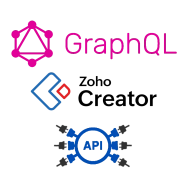The development of Application Programming Interfaces (APIs) is essential in facilitating communication and data exchange between different software systems. This article explores key technologies and trends in the field of API development, focusing on practical applications and the simplification of development processes.
The Role of GraphQL
GraphQL, a technology developed by Facebook, is pivotal in the realm of API development. It simplifies data management across systems by enabling more efficient data retrieval and manipulation. This query language has become increasingly popular for its ability to streamline the interaction between front-end and back-end services, significantly improving developer experience and system performance.
No-Code and Low-Code Platforms
The emergence of no-code and low-code platforms, such as Zoho Creator, marks a significant trend in making API development more accessible. These platforms allow users to create interfaces, dashboards, and data models without writing extensive code, reducing development time and making technology more accessible to a wider audience. However, it’s important to note that while these solutions offer quick deployment for simple applications, they may not provide the customisability and scalability required for more complex projects.
Custom Solutions for Diverse Needs
API development encompasses a broad spectrum of applications, from straightforward data management tools to complex integrations requiring bespoke solutions. The choice of development language and framework is determined by the specific requirements of the project, ensuring that developers can construct tailored solutions that facilitate seamless system integration. This adaptability is crucial in addressing the unique challenges and expectations of different projects.
Conclusion
The selection of languages for API development plays a crucial role in enabling efficient data exchange and system integration. With the advent of technologies like GraphQL and the rise of no-code and low-code platforms, the process of developing APIs has become more streamlined and accessible. Despite these advancements, the need for customised solutions remains paramount in addressing the complex and varied requirements of modern software projects. The field of API development continues to evolve, focusing on flexibility, efficiency, and the ability to meet the diverse needs of the digital landscape.






